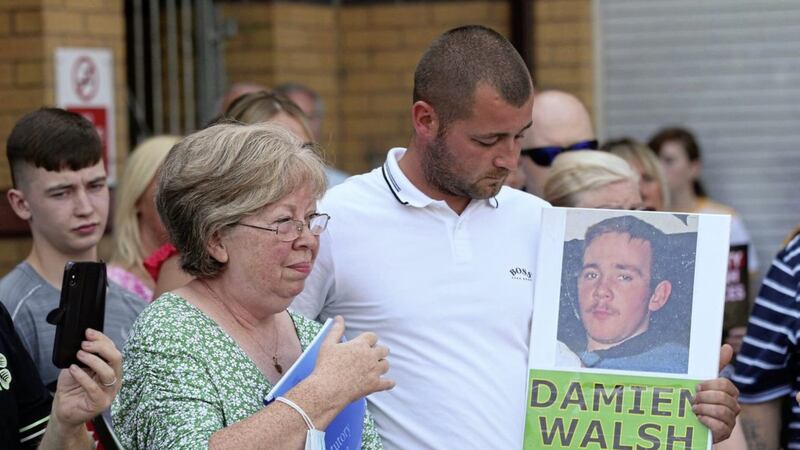THERE is no issue more contentious across our society than legacy. It is where competing narratives on our past collide and where painful memories for the bereaved remain fresh regardless of the passage of time.
Over half the killings that happened during the 25-year conflict occurred more than 45 years ago, yet for families and friends the loss will never go away nor be diminished the desire to continue with the pursuit of truth and justice to honour lives taken.
The British government’s proposals on legacy announced last month achieved the rare feat of unifying political opinion of all strands. Polling showed the proposals to end prosecutions, civil proceedings and inquests was opposed by the vast majority of people in the north, although attitudes amongst unionists were more mixed than for nationalists.
Unionist politicians often speak of early prisoner releases and comfort letters associated with On The Runs (OTRs) as concessions to republicans (they rarely consider how loyalist paramilitaries benefited from the former) without stopping to acknowledge the obvious point that none of these measures were required for members of British forces - including the RUC and UDR - precisely because state forces were given a de facto amnesty throughout the duration of the conflict.
More than 10,000 people collectively served thousands of years of sentences for the IRA throughout the conflict. In contrast, a very small number of British soldiers and RUC members were ever put behind bars.
At this remove it is hard to believe that, until many years after the ceasefires, episodes of British army/RUC collusion with loyalist paramilitaries had not come into the public domain, never mind been treated seriously by many people outside of the northern nationalist community.
The British government’s motivation in moving now to cut off opportunities for truth and justice is designed not just to ensure British soldiers avoid convictions and possible prison sentences. It is also aimed at frustrating efforts to shine more uncomfortable lights on the central role played by the state and its agencies in using loyalist paramilitaries as a proxy force to wage war on republicans and the nationalist community - in addition to avoiding scrutiny for the many killings attributed directly to British forces.
As the prominent lawyer Kevin Winters has stated, Boris Johnson’s government is “afraid of the independence of the courts in this jurisdiction”.
Of course, they also want to make sure British soldiers and intelligence personnel do not have grounds to question instructions issued by superiors in conflict theatres in the future in lands very distant to Irish shores.
The recent publication of Police Ombudsman Marie Anderson’s report into the murder of Damien Walsh provides an insight into how the British state was conducting its campaign during the final years of the conflict.
The report stated that the UDA were “provided with information by a police officer and British intelligence which informed their attack at the Dairy Farm”.
This murderous attack was witnessed by British soldiers conducting a surveillance operation at the time and was only made possible due to the decision by the RUC to withdraw surveillance on the gang believed to have been responsible for the killing.
Over the years, the RUC Special Branch and British intelligence have been implicated in arming, manning, directing and facilitating loyalist paramilitary groups so that they could more effectively conduct a campaign which focused on killing both republican activists and Catholics to weaken the former and help frighten the latter into pressurising the IRA to force a ceasefire, classic counter-insurgency methods used by the British for generations.
The manner in which legacy issues are raised and discussed by politicians of all hues and within local communities tends to reflect narratives. It is easier to discuss and focus upon Troubles atrocities in which one’s ‘own’ side were victims.
Damien Walsh was killed on March 25 1993. On the same date 18 years previously, off-duty UDR man David Graham died after being shot 10 days earlier by the IRA.
His family experience the same grief and share the same desire for truth and justice, and it is important that we all recognise and acknowledge the shared pain and suffering across our community when speaking about legacy matters.
The cynical abandonment of the Stormont House Agreement typifies the callous disregard with which successive British governments have treated people of all backgrounds in this part of Ireland, evident once again in Dominic Cummings’ latest insights into how the Johnson government consistently dismissed concerns about how Brexit would play out in Ireland.
The framework agreed at Stormont House at least provided a means of helping families and wider society to address these delicate matters in a comprehensive victims-focused manner.
Affording respect to bereaved families and victims will be essential if we are to ever truly draw a line under our past.








